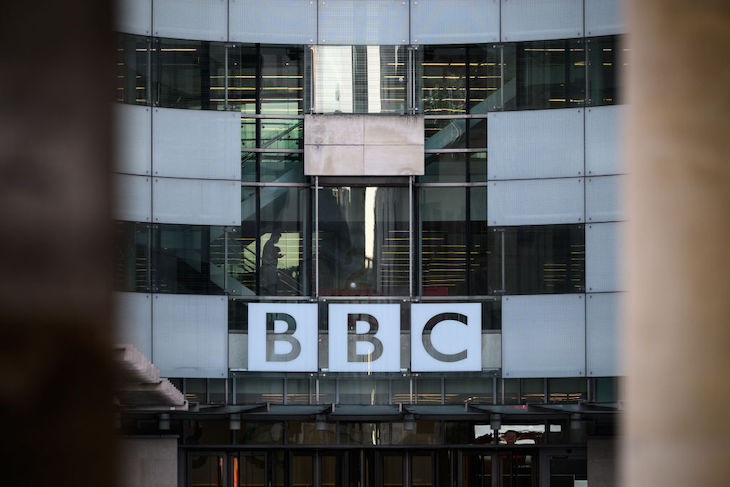There is a small section of the Labour party which I greatly admire – those on the party’s right, often from working-class backgrounds, who unrelentingly fight the party’s left without being crypto-Tories. They are more effective than the Conservative right, being more disciplined and less voluble. For decades, they have taken on the Bennite/Corbynite/Islamist/woke tendency and its paler offshoots, such as Ed Miliband. They want genuine economic and social gains for working people rather than ‘saving the planet’ or ‘decolonising’. One such is Pat McFadden, now billed as the third most powerful person in the new government. The fact that he is its main spokesman on the Today programme is evidence that Sir Keir Starmer recognises there is more to life than the view from the sash window of a human rights chambers near Gray’s Inn.
Have you noticed how our new Prime Minister likes to congratulate ethnic-minority political leaders when they fail? Rishi Sunak had worked frightfully hard, Starmer said, and we should recognise the ‘extra effort’ he had to make as our first Asian PM. Now he tells Vaughan Gething that he ‘should take enormous pride’ in being the first black first minister in Europe. His tone reminded me of a pre-war book I enjoyed as a boy called The Wonder Book of Daring Deeds. It praised the Gurkhas as ‘active little fellows’. When Starmer lauds David Lammy for his ‘enormous dedication’ as the first black Labour holder of a great office of state, we’ll know the poor chap is on the skids.
I first reported problems at the London Library in April. Disquiet is growing. In late May, members received a letter from the director, and a brochure about the London Library Capital Campaign entitled ‘Building Connections’. We were invited to give our views, but it was clear the decisions had been made. The changes include the creation of a ‘Discovery Room’ for ‘learning and participation events’ for ‘new and existing charity partners’. The basement will banish the library’s unique collection of learned periodicals to ‘off-site storage’, thus providing ‘a back-of-house catering kitchen’, which will help support a café, developing ‘the sense of community and belonging’. I can find no mention of how much all this will cost, but I do know that the retiring acquisitions librarian is not being replaced. Until quite recently, the boss of the London Library was always the Librarian. There is no Librarian now. A lesser figure called ‘director of collections and library services’ is the director’s sidekick. The director’s background is in BM Commercial. The library’s chairman has had ‘an extensive career in financial services’. Of his 12 trustees, none, I think, lives chiefly by writing. Only one has been employed in an important library. None is a full-time scholar. None resembles an ordinary London Library member. Five have themselves had extensive careers in financial services, most for the greatest American banks, and two come from marketing/corporate relations. As a result, perhaps, one word entirely absent from the brochure and its stated ‘vision’ is ‘books’.
Laid low for several days (the new Covid, perhaps?), I watched the climactic Wimbledon weekend, which I had not done since I was a student. I was tremendously impressed by all aspects – especially the BBC coverage, which was knowledgeable and calm, instead of its usual ‘amazing’, ‘fantastic’ boosterism, and by how shipshape everything was. In the 1980s, there were frequent complaints about incivility, and several Alpha-male players made too much noise. It seems more courteous now, perhaps helped by the custom of interviewing players standing on court straight after the match rather than lounging sweatily in some studio afterwards. The embrace of Djokovic and Alcaraz – one generation implicitly ceding to the next – was truly affecting. There was also a superbly symmetrical men’s doubles final, desperately close throughout. Modern cameras so well capture the faces, especially the little tactical exchanges doubles partners have with their hands covering their mouths so they cannot be overheard or lip-read. They looked like conspiratorial figures in a crowd painted by some Italian or Flemish Renaissance master.
John Littlewood, who was first told to read The Spectator by his headmaster at Farnborough Grammar School to improve his awareness of current affairs for the Oxbridge interview of 1953, kindly writes to me. He believes this advice helped him get into New College, Oxford, and has been a reader ever since. He is frustrated, however, because, from 1996 to this day, he has been trying to air his theory about why road accidents in Germany, France and Italy are twice as high as those in Britain. All publications have rejected him. I think it is high time to let Mr Littlewood speak. He notes: ‘A significant majority of drivers [70 per cent] have a master right eye.’ Left-hand-drive countries – Britain, Japan and Australia – ‘have significantly fewer deaths on the road’ than comparable countries driving on the right – the United States, Canada and continental Europe. In countries that drive on the left, the first split-second view of approaching, overtaking and sudden change in traffic will be taken by a majority of drivers with a master right eye. In benighted countries that drive on the right, the ‘split-second picture of traffic conditions’ is first seen by the left eye, which is the master eye of only 30 per cent. Mr Littlewood tells me that the ancient Romans intuitively understood this and therefore drove on the left. Driving on the right is the Napoleonic result of anti-historical French Revolution rationalism. Like so many things from that source, it can be fatal.
An email reaches me from Reform UK. It is headed ‘Farage builds a leadership team. Scam warning.’ Noted.








Comments